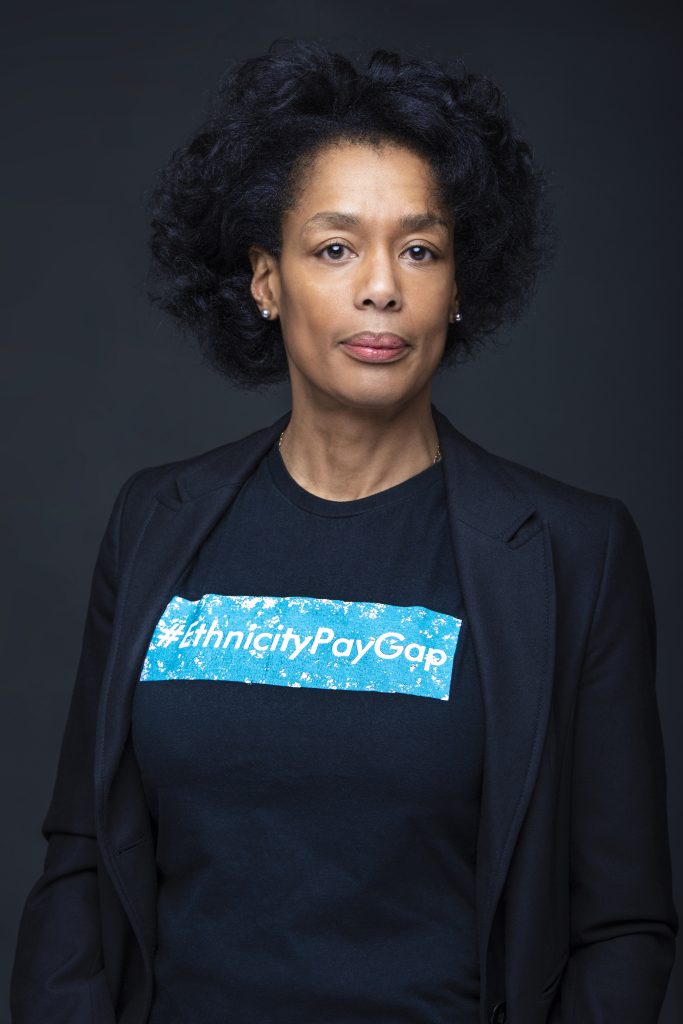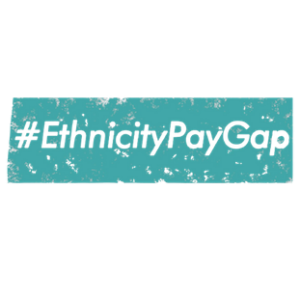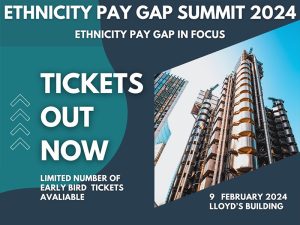While many gross disparities across racial lines have persisted and continue to move in a carousel from overt to covert and back in post-war Britain, some disparities appear to be more apparent in the minds of people.
For example, it is often cited in public discourses that the U.S has a prodigious incarceration rate of African Americans, but far less attention (until the Lammy Review in 2017) is given to the fact that since at least 2010 it has been purported that the proportion of Black people in England and Wales was nearly seven times the share of their population, in comparison to 4 times that of the Black population in the U.S. Also, until about 4 years ago, the reality that a Black female was 5 times (now 4 times) more likely to die in childbirth than their white counterparts was generally obscured from dominant discourses in Britain. One could argue that you would more likely hear about the plight of African American women being 3 times more likely to die in childbirth in British news than the higher ratio in Britain.
Pay disparities across the colour line seem to follow a similar pattern. Back in 2019, the Leader of the Labour Party Jeremy Corbyn pledged to close the gender pay game by 2030, yet there was silence about the ethnicity pay gap. Is it any wonder why Dianne Greyson, who established the Ethnicity Pay Gap Campaign – in 2018 stated that ’If I was to go out and say to people excuse me do you know anything about the gender pay gap, the majority would say yes. And if I said, do you know anything about the Ethnicity Pay Gap, the answer would more likely be no’’?
Dianne Greyson is the Managing Partner of Synergised Solutions which is an consultancy that specialises in Equity, Diversity and Inclusion (EDI) change management and is versed in consulting with multinational companies, governmental and public sector agencies. Just shy of ten years, Greyson has been the director of Equilibrium Mediation Consulting where she carries out roles as a qualified mediator and generalist HR work. Greyson also sits on the board of several organisations that are addressing pay inequalities such as Equal Pay Alliance and is a well-seasoned professional in HR and recruitment.
As recently as October 2023, she has held a non-executive position with Spktral which conducts analytics on pay gaps. Speaking about the position Greyson told Nu Origins: ‘’One of the reasons why I accepted the position is because I knew that they didn’t just focus on the figures, but the people behind the figures which is very important to me’’.
If you are even remotely aware of the disparities of pay across the colour line within the UK, chances are you will be familiar with the name Dianne Greyson and her Ethnic Pay Gap Campaign. The Ethnicity Pay Gap Campaign came to fruition after Greyson read an article in 2018 about the ethnicity pay gap. Startled, by the content the campaigner pondered why she was incognizant of this disparity across the colour line. ‘’It infuriated me. I was quite angry about it’’ admitted Greyson. This provoked Greyson to raise awareness of the pay gap leading to t-shirts printed with the Ethnicity Pay Gap hashtag on the front and details about her company Equilibrium Mediation Consulting, on the back.
Although the phrase MeToo can be traced to circa 2006 on social media by sexual violence campaigner and founder of JustBe, Tarana Burke – the phrase and use of the hashtag never gained traction until 2017 after American actress Alyssa Milano took to what was then known as Twitter to use her platform to speak about sexual abuse. Later that year in October the hashtag #MeToo picked up greater currency with sexual allegations concerning the now-convicted sex offender and former film producer, Harvey Weinstein.
Inspired by the impact of hashtags, in 2018, Greyson decided to generate a hashtag for the Ethnicity Pay Day Campaign. Dianne Greyson who is also the author of Business Culture which is a multitude of articles about organisation behaviours said: ‘’The purpose was for me to personally show solidarity. So, I did that, and I posted it on LinkedIn’’.

Wearing her exclusive t-shirt with the caption #EthnicityPayGap people began contacting Dianne asking her where she got the t-shirt. Inundated with interest, she had to hastily find a printer and recreate her design so that her professional network could purchase their very own t-shirt.
‘’Whilst that was going on, I then saw another article in the Guardian which said that the Ethnicity Pay Gap was 3.2 billion in the UK which further angered me and I think there was another one which was about Black doctors’’ said Dianne Greyson
In 2018, research by the Resolution Foundation revealed that global majority (people classified as Black, Asian or racialised as ethnic minorities) employees in the UK were collectively losing out on £3.2bn a year in salaries in comparison to their white counterparts doing identical work.
In the findings by Resolution Foundation, disparity levels varied considerably. For example, graduates from a Pakistani and Bangladeshi background earned on average 12% less an hour, while Black females topped the list for the biggest pay gap amongst other females, typically earning 9% less. Disparities appeared to narrow with non-graduates, but Pakistani and Bangladeshi men were said to earn a startling 14% less. For Black male graduates, the figure climbed to 17% less which is equivalent to a £3.90 an hour gap.

As the popularity of Dianne’s Ethnicity Pay Gap t-shirts continued to surge, invitations to write articles for different organisations proliferated. ‘’I was lucky to then have a conversation with the then CEO of the time at the Fawcett Society who were researching the gender pay gap and I said would you support me on raising awareness of the ethnicity pay gap? And she said yes’’ the campaigner said. This led to wider support from organisations such as the Equality Trust who helped in raising awareness and expanded into her running webinars edifying organisations about ethnic pay disparities. ‘’So they [organisations] would recognise the effects’’ adds Greyson.
The human aspect of the economic disparities in income is a key concern for Dianne Greyson which she argues transcends beyond statistics. ‘’Newspapers’’ asserts Greyson ‘’they just put out lots of stats that say this is the percentage, but they are not telling the backdrop of that. You know the people behind that so I wanted to make sure that when I am doing my webinars I am talking to organisations, and they can recognise that there is a real personal issue here regarding not being paid fairly’’.
Because of her immense campaigning, Greyson has been invited to parliament to speak at round table discussions about the Ethnicity Pay Gap which magnified her campaign. And last November, Greyson won Best Grassroots Campaigner at the UN Women UK Awards. Even with the increased awareness of the Ethnicity Pay Gap, Greyson believes there is a lack of awareness among the UK population. ‘’If I was to go out and say to people excuse me do you know anything about the Gender pay Gap, they would more than likely say yes. And if I said, do you know anything about the Ethnicity Pay Gap, the answer would mostly be no’’ stated Greyson.
Dianne’s optimism is hindered by a realism that when discourses about the Ethnicity Pay Gap does arise in the political sphere it is nothing short of performative at best. With a sigh, Dianne said: ‘’They basically put it in a cardboard and lock the door and they’ll bring it out at some point, I am sure’’.
In 2017, Baroness Ruby McGregor-Smith published a government-commissioned review investigating the progression of global majority groups in the UK labour market. A fundamental recommendation was the introduction of a mandatory ethnic pay gap disclosure for organisations with 50 employees, or more. Initially, the government rejected mandatory reporting, instead opting for voluntary reporting.
A year later in 2018, the then-prime minister, Theresa May initiated a consultation about whether compulsory reporting of ethnicity pay gaps should be enshrined in law. Earlier that year the government also commissioned the One Year On’ Review of the McGregor-Smith Report which found little progress had been made about Baroness Smith’s recommendations in 2017. In response, a further consultation by the Department for Business, Energy and Industrial Strategy (BEIS) solicited views regarding factors such as the benefits of gathering and the monitoring of data, what ethnicity pay data should be included in the reporting and data handling and anonymity. The review concluded in early 2019.
Despite the BEIS acknowledging Ethnicity Pay Gap reporting could serve as what was worded as a ‘’valuable tool’’, government commitment to establish a mandatory ethnicity pay gap system of reporting which is akin to the Gender Pay Gap reporting was not gratified. Since 2017, it has been compulsory for employers with 250 or more employees to issue gender pay gap data.
What may be astounding to some, is the fact that 90% of employers in the consultation responses were favourable towards a mandatory Ethnicity Pay Gap requirement, arguing that such an implementation fosters transparency and allows insights about their workforce to come to the forefront and provides an atmosphere for actions plans to be set to intercept inequalities.
”It is all well and good that people say oh look I’ve done it, but what have you done to close it? And I think there is not enough of a conversation about that. This is a human rights issue”
Furthermore, there appears to be a readiness of employers with at least 75% of employers who were involved in the consultation stating that they already collected ethnicity statistics, using the 2011 or 2001 Official National Statistics (ONS) Census classifications or other available ethnic classifiers. The 75% readiness of employers is greater than that of the gender pay consultation held in 2015, where it was said only 62% of employers had adequate data to evaluate an overview of the Gender Pay Gap.
Asked why the government response to the Ethnicity Pay Gap and the Gender Pay Gap has been drastically different Dianne Greyson said: ‘’Anything to do with race everyone runs about panicking thinking oh my gosh, rather than thinking this is wrong and it shouldn’t be happening’’.
In the government response to the consultation in July 2023, the report said: ‘’The government believes that employers should have the freedom to determine how they set out the actions they will take to tackle the barriers ethnic minorities may face in their particular organisation but that some guidance on good practice may be helpful’’.
Dianne Greyson believes the report ‘’is a disgrace’’. Finding the report insulting and ‘’diabolical’’ asking ‘’when is the right time?’’ Greyson goes further in stating that it is not just about mandatory reporting. She laments that it is also about closing the pay gap which transcends beyond the mere gathering of data that is not acted upon. The campaigner said: ‘’It is all well and good that people say oh look I’ve done it, but what have you done to close it? And I think there is not enough of a conversation about that. This is a human rights issue’’.
The government has the legal authority to hold a general election in January 2025, but British prime minister, Rishi Sunak declared at a press gallery at number 10 on the 18th of December 2023 that a general election will occur in 2024. With a possible change of government, Dianne Greyson is recognizant that The Labour Party have the ethnicity pay gap on their manifesto.
Dianne Greyson told Nu Origins: ‘’I am hoping that I can work more closely to try and assist the [Labour Party] with their actions to close the Ethnicity Pay Gap. I think it is important for me to be part of that conversation because if they get in I would like to help to shape where they go with that and that it doesn’t just become a tip box exercise where okay we have made it mandatory and that is all’’.
At the time of publication, the press team at the Department for Business, Energy and Industrial Strategy (BEIS) has yet to respond to our request for a statement.
The first few months of 2024 will be momentous for the Ethnicity Pay Gap Campaign. Forthcoming events include the Ethnicity Pay Gap Day on the 8th of January and the The Ethnicity Pay Gap Summit in February.
Ethnicity Pay Gap Day
The Ethnicity Pay Gap Day takes place annually on 8th January. Readers can support the Ethnicity Pay Gap campaign by using the hashtag #EthnicityPayGap on their social media platforms and purchasing the #EthniictyPayGap t-shirts and merchandise.
 The Ethnicity Pay Gap Summit 2024 will take place on Friday 9th February. Tickets can be purchased via the website.
The Ethnicity Pay Gap Summit 2024 will take place on Friday 9th February. Tickets can be purchased via the website.




